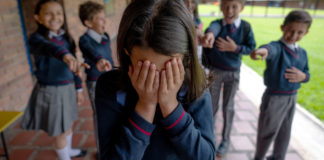Identity crisis: a short guide for parents of teenagers
I have two reasons for writing this article on identity crisis. First, I am the father of four children, three of whom are very different teenagers (14, 17 and 19 years old) and I think I have a vague idea of what it means to deal with teens. Second, in the studies I’ve recently taken up, I was surprised to discover that most...
Spoiling is not love
Being a parent means, among other things, engaging in agonising negotiations to keep the supermarket aisles relatively quiet and the shopping trolley from overflowing with sweets. Some are successfully concluded. Others, a real failure. Although we are very adept at recognising a spoiled child on the street, we have a much harder time spotting the signs in our own children. After all, what...
Blood is (not always) thicker than water | Sibling estrangement, from causes to solutions
For at least one party, sibling estrangement can be more painful than loss through death, writes Fern Schumer Chapman, who was excluded from her brother's life for four decades.
“The insecure adults of the future” | Parent-child dependency
Dependence tends to have negative connotations—we may be addicted to sugar, the internet or gambling. Other times we are dependent on people or relationships, in which case the line between positive and negative is no longer easy to draw.
Children’s leisure time: then and now
I grew up on an unpaved, quaint side street in Ploiești, Romania. After school or during summer vacations my neighbours, M. and C., and I were an inseparable trio. We were almost always outdoors. If it wasn't too hot or raining, you could find us in one of our backyards.
Do children ruin marital happiness? How to manage the changes generated by the birth of children
Describing the breakup of her marriage after the birth of her children, journalist Nora Ephron writes that a child is a grenade for the couple’s relationship. After the explosion, when the dust settles, “your marriage is different from what it was. Not better, necessarily; not worse, necessarily; but different.” [1].
“Demon Dialogues” and the need for connection: Why do conflicts between partners arise?
Happy couples are not spared from marital conflict, but the crucial thing is that they have simple but effective tools to strengthen their relationship in a way that does not allow the conflict to destroy the emotional connection between them.
More than stardust | Grandparents and their spiritual heritage
"Children are not a distraction from more important work. They are the most important work.” (Dr John Trainer)
Sometimes I pass my grandparents' house, which...
COVID-19: Forgiveness in isolation
When we are isolated with our family, problems that are sometimes easy to ignore become more acute, and the need to receive and offer forgiveness to those around us becomes increasingly evident.
Parenting lessons from imperfect parents
A few years ago, I had the pleasure of meeting a young woman who was good at everything. Although she was only in her early twenties, she was an expert in the kitchen, passionate about cleaning, attentive to the needs of children, had a green thumb, was skilled at raising animals and was able to give an articulate speech in her field of...
Regaining lost free time | A parent’s route to leisure time
Sometimes, parents end up not having any free time during the day. Why is relaxation not easy for parents?
How to inspire a passion for reading in your children
"School is where children learn that they have to read. Home is where kids learn to read because they want to," conclude the authors of a guide to cultivating a passion for reading in children of all ages. It is clear that with good resources and role models, a child can become passionate about reading, but there are parents who wonder where they...
How harmful is corporal punishment for children?
In an ideal world, everything would be simple: you, as the father or mother, tell your child, the apple of your eye, to do something and, being perfectly obedient and submissive, they do as they’re told. However, we don’t know if such a world would really be ideal. Nevertheless, for many parents, this resembles a paradise to which they would love to escape...
Bullying: Effective strategies to put an end to it
Children who fall prey to bullying cannot save themselves, just as the children who have become accustomed to bullying others will not give up this behaviour without outside intervention. As the phenomenon of bullying spreads, with harmful consequences on children's development, the need to know and apply strategies to combat it is becoming more pressing.
How children are affected by the loss of a parent
It is difficult to say whether there is a preferable age for facing the death of a parent, but having it happen during childhood and adolescence can have devastating effects on physical and mental wellbeing, which can extend even into adulthood.


























